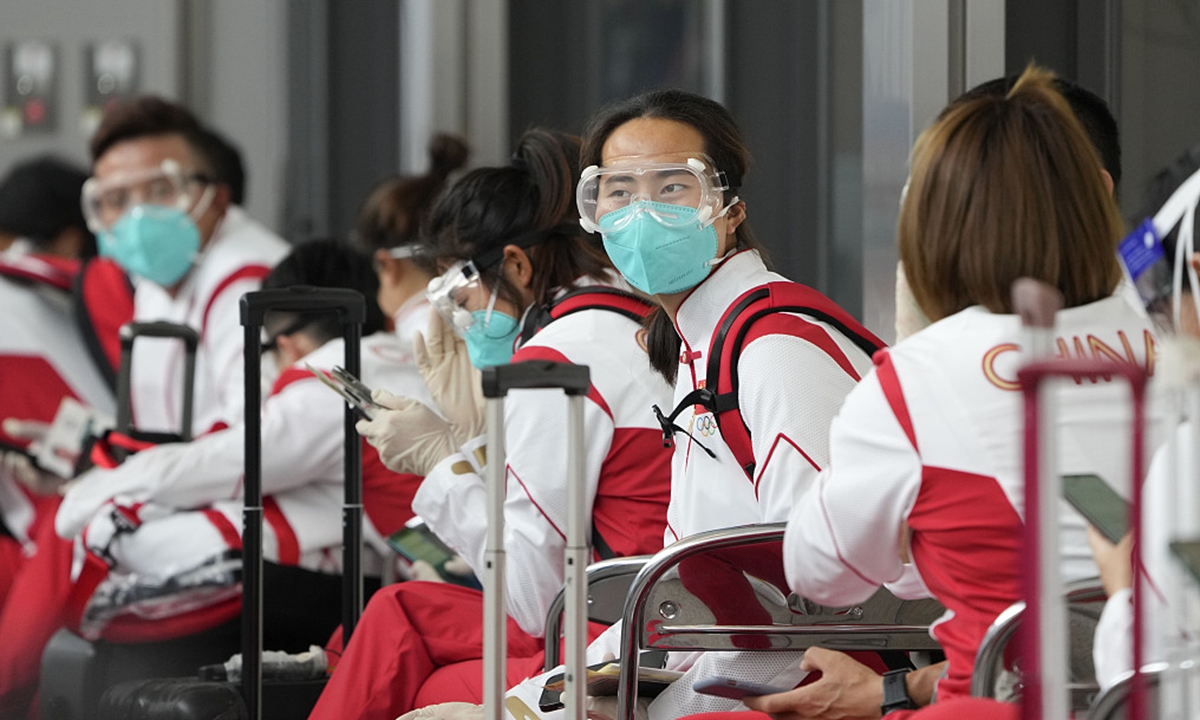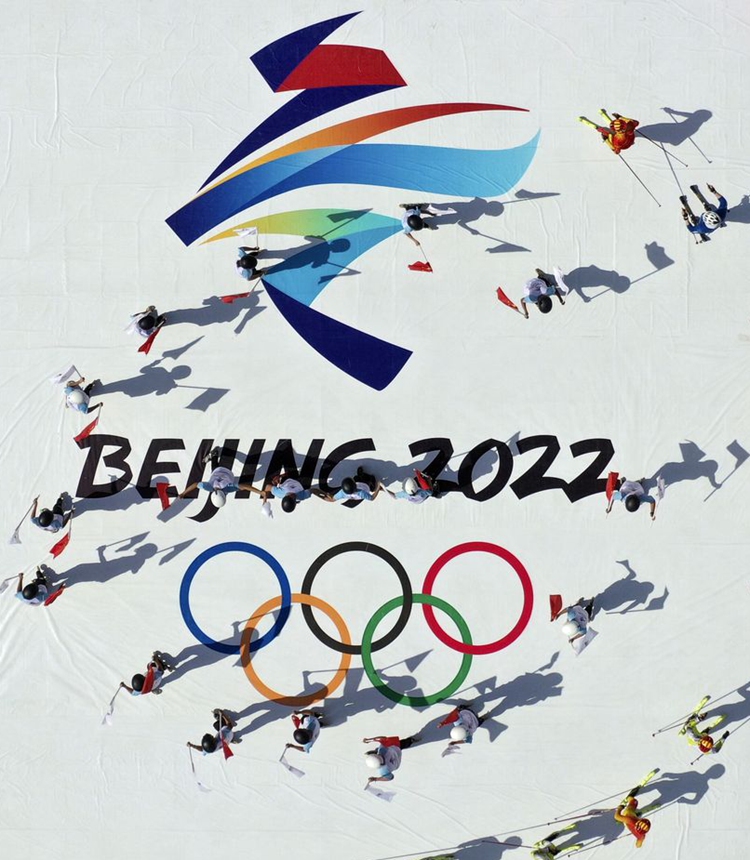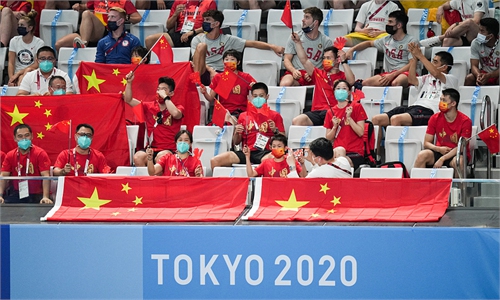China verifies effective virus control with 0 infection in Chinese delegation to Tokyo, reassures Beijing Games
China's record 777-member delegation for Tokyo Olympics returns with zero infection

Team China Photo:VCG
China's record 777-member delegation for the Tokyo Olympic Games returned safely with "zero" COVID-19 infections, and many netizens believed China's strict epidemic measures contributed to the Chinese team's best results in an overseas Olympics.As eyes turned to the Beijing Winter Olympics, Chinese athletes and health professionals are confident that China could successfully hold this major event next year while preventing flare-ups in Beijing and surrounding cities with precise precautions.
Although Beijing faces a challenging winter as the SARS-CoV-2 - which survives longer in the winter - may worsen the global COVID-19 situation, Chinese observers said that with a higher vaccination rate and strict and precise measures, China could ensure a safe Olympic Games next February.
Apart from outstanding performances, the returned Chinese athletes, medical team and other working staff of the delegation achieved a major goal - zero COVID-19 infections.
Wang Jianquan, Peking University Third Hospital doctor and chief medical expert of the Chinese delegation to Tokyo, said that individual awareness of the need for protection, the prevention and control system of the delegation, and the strong sense of discipline of the Chinese athletes fully demonstrated China's advantages in epidemic prevention and control at the Tokyo Olympics.
The event also provided precious experience for the Beijing Winter Olympics, experts said.
A Chinese medalist who preferred not to be named told the Global Times on Wednesday that Chinese athletes abided by strict prevention standards in Tokyo.
"We wore masks even in our own living rooms, had nucleic acid testing every day through saliva tests, and epidemic prevention staff came to our rooms every day to check whether we properly wore masks," he said.
Wang said that athletes would be given swab tests for any suspicious results from nucleic acid testing.
Also coming back from Tokyo was a group of observers of the Beijing Organizing Committee for the 2022 Olympic and Paralympic Winter Games. The 34 observers learned venue design, operation and traffic management, and they had in-depth communication with the International Olympic Committee during their visit to Tokyo, according to the People's Daily.
They will use what they have learned from Japan to further optimize the Beijing Winter Olympics.

Aerial photo taken on May 11, 2019 shows the performance during the 1,000-day countdown celebrations of the Beijing 2022 Winter Olympic Games in Chongli of Zhangjiakou City, north China's Hebei Province. (Xinhua/Xing Guangli)
Wang Guangfa, a respiratory expert at Peking University First Hospital, told the Global Times on Wednesday that unlike the Tokyo Olympics, the Beijing Winter Olympics will be held in February 2022 when SARS-CoV-2 usually survives longer.Global pandemics usually worsen in the winter as many countries witness flare-ups, Wang said, noting the rampant Delta variant may make things worse.
But the global vaccination campaign will help to curb the spread of the virus, Wang said.
Thus, Wang believed it's necessary for all participants in the Beijing Winter Olympics to be fully vaccinated, and China could arrange this for those who cannot get access to vaccines in their own countries.
As for epidemic prevention measures, Wang said Beijing could absorb some experience from Tokyo, such as no overseas spectators.
But for some outdoor events, it's possible to have a domestic audience by keeping a safe distance, Wang said.
An expert at the Chinese Center for Disease Control and Prevention who requested anonymity told the Global Times last week that unlike the Tokyo Olympics, which had many in-door events, many events of the Beijing Winter Olympics will be held outdoors, making it possible that Chinese will be able to watch the events in person.
He said that many health experts are confident in preventing a resurgence of the epidemic in Beijing and surrounding areas during the Winter Olympics, and spectators are likely to enter and leave stadiums through different channels to completely separate audience members from athletes and working staff to lower infection risks.
As for quarantine policies, Wang said that foreign athletes and representatives could be subjected to closed management immediately after arrival.
Each delegation should stay in one facility, and its members cannot be allowed to go out for travel or shopping apart from necessary training, Wang said, noting that all the prevention measures should be negotiated with the International Olympic Committee.
With only six months to go before the Winter Games open in Beijing and co-host Zhangjiakou, Hebei Province, 53 of 57 Winter Olympic projects in Beijing had been completed as of July. The remaining four projects, including the national stadium's construction and renovation, will be completed this year, the Xinhua News Agency reported.



